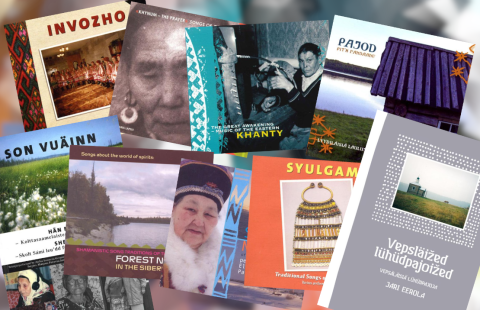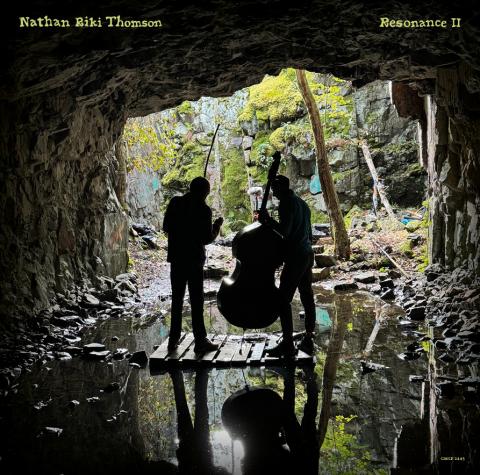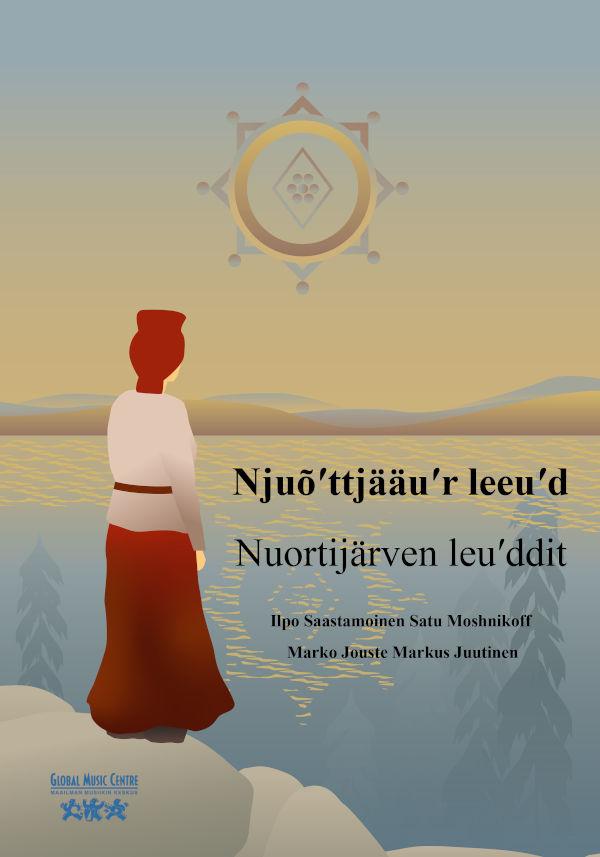Publications form an important part of Global Music Centre operations. In the early days of the organization, publishing was associated mainly with research on workers’ music, and publications were principally in the form of books and printed music. Since the 1990s, however, the focus has shifted to sound recordings. CDs are produced by the Global Music Centre from recordings made both in the field and in the Centre’s own studio.
Global Music Centre CDs include a unique collection of the music of the Fenno-Ugric and Samoyed peoples. Recording and studying this traditional music is a continuing function of the Global Music Centre.
Super Collection!

Now you can purchase an extensive CD collection of Finno-Ugric music from the Global Music Centre for a fair package price. You can learn more about each product on the store page, under the individual product in question.
The package includes:
INVOZHO - Traditional Songs of Udmurtia Various performers
KHYNUM THE PRAYER – Songs of the Nenets Performed by Anastasia Lapsui
MUSIC OF THE EASTERN KHANTY - The Great Awakening
Pit`k randaane - PAJOD - Lyydiläisiä lauluja - CD
SON VUÄINN - She Sees - Skolt Sámi leu'dd from the Kola Peninsula
Songs about the world of spirits: Shamanistic Song Traditions of the Pur River FOREST NENETS in the Siberian Taiga
Songs of the Nenets of the Kanin Peninsula performed by ELIZAVETA PAVLOVNA ARDEEVA
SYULGAM - Traditional Songs of Mordovia
Vepsläižed lühüdpajoižed – Vepsäläisiä lühüdpajoja
Latest releases

Nathan Riki Thomson - Resonance II
Continuing his long-term exploration of the theme of resonance from both physical and metaphorical perspectives, the starting point for this album was to explore the natural resonance of outdoor spaces and the ways they might affect the musical outcomes. Recordings took place by the sea and in a rock cave hidden amongst a forest in Helsinki, as well as in the natural environment of Aotearoa / New Zealand.
The natural resonance of these places intertwines with ambient sounds emanating from nature and human made sources, which all contribute to and have an impact on the resulting music and sonic landscape, including a series of solo prepared double bass pieces. A further aspect of resonance emerges through three intercultural duos with musicians from diverse cultural and musical backgrounds, exploring points of resonance between the musicians, as well as between the musicians and environment around them.

Karjalasta kolttien maille
Karjalasta kolttien maille (From Karelia to the Skolt Sámi Lands) project which started in 2020, explores the commonalities and special features of Karelian and Skolt Sámi culture through folk music and folklore. The unifying factors are long narrative songs, wails, dancing the katrill and various couple and circle dances, the Orthodox faith and a evacuee background. Both the Skolt Sámi and Karelian languages have suffered due to the Finnification policy. The goal of the project is to increase awareness and understanding of minority cultures and to produce new art originating from them, as well as to create a dialogue between Skolts and Karelians.
The album includes a total of 17 songs in the Skolt Sámi, Karelian and Finnish languages. The songs include, among other things, leuʹdd, poetry, lullabies, dance and play songs, and laments. Some of the songs are old and traditional, some are new compositions.

Njuõʹttjääuʹr leeuʹd - Nuortijärven leuʹddit
Nuortijärven leuʹddit presents the Skolt Sámi leuʹdd tradition of the Kola Sámi Peninsula, as collected during the Kola Sámi Project in 1993–97. The focus is on material notated and analysed by musician and musicologist Ilpo Saastamoinen. The work is a continuation of the Global Music Centre’s earlier collection of recordings and texts, Son vuäinn. That material is now being published for the first time as an extensive collection of sheet music. The work contains leuʹdds performed by two masters of the Skolt Sámi tradition, Anfissa Gerassimova and Anastassia Gerassimova. The texts were transcribed by Satu Moshnikoff and Markus Juutinen. The illustrations are by Erja Taskinen. The work is edited by Marko Jouste and Markus Juutinen.
The book is published in Finnish and Skolt Sámi.
